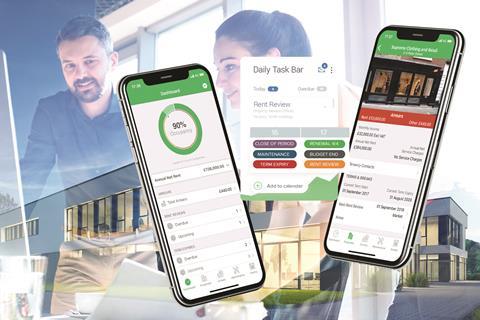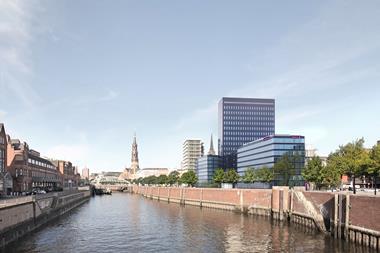Three years ago, when the new era of proptech emerged in the market, the pressure on the property industry to adopt tech came predominantly from ‘start-ups’ pestering established property companies to buy their products. Most people in the property industry weren’t really biting. Perhaps the value of adopting tech was not clear or the time wasn’t right to navigate that world – particularly when the property market was strong.

But money talks. Over the past couple of years, things have changed. In 2018, some £8bn of venture capital was invested in UK start-ups, a large majority of which are proptech firms. SoftBank’s $100bn Vision Fund has spent almost 30% of its firepower on proptech companies and now accounts for a major holding in WeWork. CBRE, JLL and almost every other institutional property player is investing internally – and externally – in the sector.
In a shift of forces from push to pull, the property industry is beginning to embrace technology now like it never has done before
There are a number of reasons why this is happening. First, it is all part of the natural evolution of technology – property is no different to other industries. Think of banking. As a consumer, I use Monzo; it’s not a big, traditional bank, but it does everything I would expect from a bank and it does it all on a mobile app. The same can be said of transport. The boom in services such as Uber and the likes have changed the way we move around our cities.
Facebook, Amazon, Netflix, Google – all technology companies, known by the affectionate term FANG – have become some of the world’s largest companies, all in the past 15 years.
I don’t think the property industry has been slow to adopt technology, it just hasn’t had its turn yet. The industry has now realised what opportunities are out there and it is adapting accordingly.
We are also going through a generational change. A new wave of young people coming up through the ranks are demanding tech because they’ve grown up with it; they are the tech generation. There is a move from spreadsheets and paper to mobile apps and the cloud. Their expectations are high and businesses will feel pressured to adapt to their needs.
Another factor is the education of the property market. On one side, proptech businesses are getting better at promoting their technology to top players. Those businesses that are offering a genuine solution to a problem are still here; those that created a solution looking for a problem are not.
On the other side, property managers and landlords are becoming aware of the reputable software brands available on the market and how exactly they can use technology to alleviate their administration and accounting pains.
It’s a small world and people talk. If a property business is finding tech beneficial, those tech adopters will tell their peers, who naturally will want to know which tools they’re using and how they’ve become more productive.
Proptech use accelerating

A recent survey published by Property Week revealed that 45% of large commercial real estate companies use or are trying to use data automation. The vast majority of respondents – more than 400 senior property executives around the country – believe we will see a massive acceleration of the use of technology in the sector.
When combined, all these reasons are very strong investment indicators for businesses. Proptech is no longer a speculative investment, it is a smart one.
The final factor to hammer home this change is the decision by Her Majesty’s Revenue and Customs (HMRC) to launch a fully digitised tax system by 2020.
HMRC ‘Making Tax Digital’ drives further adoption
From this spring, every company with more than £85,000 in revenue will have to submit their returns via digital accounting software.
HMRC is effectively obliging all companies to go digital, a bold move that will affect all property businesses and will force the hand of traditional property landlords. Perhaps the most surprising aspect of it is that the initiative is coming from a body that you would perceive as slow-moving.
It is a true game changer. Ensuring that everyone submits their accounts digitally means that the amount of human errors is going to be reduced almost to zero. Completely avoidable mistakes currently cost the country over £9bn a year.
It has been reported that almost 9,000 UK landlords have underpaid or undeclared tax on their lettings in 2018, 50% more than in the previous year.
Making Tax Digital will put an end to all this. Centralised data identifies these mistakes, mitigates risk, gives you more control and gives you the ability to run your business more efficiently. Most importantly, every pound is accounted for, so you can make good and timely decisions.
The HMRC’s move will particularly affect landlords who still run companies with hundreds of millions of pound of properties under management with a piece of paper and a spreadsheet. At Re-Leased, we still see a lot of them every day. It amazes me.
However, by April this year, the no-tech choice will be off the table. Alongside becoming HMRC compliant, property professionals should take this opportunity to educate themselves, increase operational control and propel their business forward.
Single-platform solution
Re-Leased is designed and developed by commercial property professionals that felt the pain of using outdated technology. Our software automates and centralises the lease administration and accounts of property portfolios in one modern platform.
Through our mobile apps, landlords and managing agents can get live and accurate insights directly on their smartphone, without the need to be in the office – a first in the industry. Our system is also seamlessly integrated with award-winning accounting tool Xero, with which we have a strong partnership.
We designed our software to make it as user-friendly and ready-to-use as possible. Traditionally, business-to-business software is less intuitive than consumer products. By taking inspiration from intuitive apps that we all use in everyday life, we cut the number of clicks down to just a couple.
To summarise, technology, once perceived as a disruptor, is becoming the norm. I don’t agree with the narrative that the property sector is slow to embrace change, but take-up in the industry is certainly mixed. The point is it is not if, but when. The sooner property businesses adopt tech, the greater the returns will be on their investments. They will be more successful. And their lives will be easier, too.
About Re-Leased
Through modern cloud technology Re-Leased is supporting hundreds of managing agents and landlords across the UK. The award-winning property management software is for commercial and mixed portfolios – automating and centralising property administration and finances for full control. Re-Leased frees users from the office with powerful mobile apps and delivers insights on the go. Embrace Re-Leased and grow.
Re-Leased are at Mipim 2019. Get in touch to meet at: uk@re-leased.com
www.re-leased.com
Topics
PW Perspectives: the structural changes affecting the industry
- 1
- 2
- 3
- 4
- 5
 Currently reading
Currently readingProperty is embracing technological solutions
- 6
- 7
- 8
- 9
- 10







































No comments yet